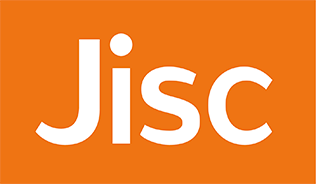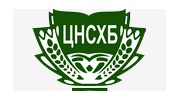Russia’s ways to ensure food security (control food prices) in 2020–2022, and their impact on consumers
Nov 16 2023Shagaida N.I., Ternovsky D.S., Trotsuk I.V. Russia’s ways to ensure food security (control food prices) in 2020–2022, and their impact on consumers // The Russian Peasant Studies. 2023. V.8. №3. P. 87-112.
DOI: 10.22394/2500-1809-2023-8-3-87-112
Annotation
This year confirmed an ambiguous situation with food security in Russia. On the one hand, the government insists on the achieved sustainable food self-sufficiency/sovereignty: “Russia is self-sufficient in all basic types of food”2 ; “the level of food security in Russia is one of the most reliable in the world”3; “the Eurasian Economic Union has reached a level of self-sufficiency in most food products (grain, vegetable oils, pork, lamb, sugar, eggs)”4. The Russian leadership admits the “very complex nature” of food sovereignty as depending on climate change, population growth, trade wars, sanctions, and so on5. However, the official discourse emphasizes that “we should not be pessimists”, “a country striving to be sovereign must provide itself with food”, and Russia solves this task so successfully that has become one of the largest food exporters. Therefore, “in 2023, food inflation in Russia will be one of the lowest in the world due to self-sufficiency in basic products” 6 and “systemic measures of anti-crisis support for enterprises and sectors that ensure food security”7 . Since mid-2020, rising prices on world markets have determined higher prices on domestic markets, and high food inflation affected many countries. In Russia, food inflation is lower compared to other regions (10% vs 19.1% in the EU or 14.9% in the OECD), and the rate of increase in food prices is lower than general inflation, while in other countries food prices became key drivers of accelerating retail prices. The article considers Russia’s measures for keeping food prices down and its population’s everyday food-consumer practices for keeping usual diet under rising prices. The survey confirmed the persistent inconsistency of Russians’ assessment of food practices, which can be explained by the trend to ‘normalize’ one’s life situation in general and in its most essential part (daily diet) in particular.
Keywords
Rising food prices, foreign and domestic markets, food inflation, food prices volatility, food (in)security, (everyday) food-consumer practices, economic and physical access to food, sociological data.
About the authors
Shagaida Natalia I., DSc (Economics), Head of the Center for Agro-Food Policy, Russian Presidential Academy of National Economy and Public Administration. 119571, Moscow, Vernadskogo Prosp., 82.
E-mail: This email address is being protected from spambots. You need JavaScript enabled to view it.
Ternovsky Denis S., DSc (Economics), Senior Researcher, Center for Agro-Food Policy, Russian Presidential Academy of National Economy and Public Administration. 119571, Moscow, Vernadskogo Prosp., 82.
E-mail: This email address is being protected from spambots. You need JavaScript enabled to view it.
Trotsuk Irina V., DSc (Sociology), Professor, Sociology Department, RUDN University; Senior Researcher, Center for Agrarian Studies, Russian Presidential Academy of National Economy and Public Administration. 119571, Moscow, Vernadskogo Prosp., 82.
E-mail: This email address is being protected from spambots. You need JavaScript enabled to view it.
Russia’s food security under the crisis of 2020– 2021: Objective and subjective dimensions
Sep 12 2022Shagaida N. I., Trotsuk I. V. Russia’s food security under the crisis of 2020–2021: Objective and subjective dimensions // The Russian Peasant Studies. 2022. V.7. №2. P. 93-121.
DOI: 10.22394/2500-1809-2022-7-2-93-121
Annotation
The article presents the results of the assessment of Russia’s food security in 2020–2021 based on the available statistical data and sociological monitoring of the population’s ‘food well-being’ conducted since 2015 by the Center for Agro-Food Policy of the RANEPA. The authors believe that the pandemic risks for Russian agriculture were limited, and agricultural production ensured a high level of food self-sufficiency. Although the physical access to food remained at the same level, the economic access has deteriorated; however, Russian families managed to keep their usual diet by redirecting the money saved due to the pandemic restrictions to food consumption. Rising food prices have become the most important problem under the crisis, and to solve it, the Russian government has used a wide range of measures — from reducing duties on food imports and temporary bans on food exports to setting marginal retail prices for certain food products. The sociological assessment of the population’s ‘food well-being’ (the all-Russian telephone survey) showed that the families’ requirements to the access to food are rather modest due to the huge credit of patience and sustainable practices of adaptation to the objective social-economic restrictions. Given the achieved indicators of Russia’s food self-sufficiency according to the Food Security Doctrine, the state should shift its focus from food self-sufficiency (and increasing exports) to the economic access of the population to food.
Keywords
Food security, food well-being, self-sufficiency, economic and physical access to food, pandemic, statistical and sociological data.
About the authors
Shagaida Natalia I., DSc (Economics), Head of the Center for Agro-Food Policy, Russian Presidential Academy of National Economy and Public Administration. 119571, Moscow, Vernadskogo Prosp, 82.
E-mail: This email address is being protected from spambots. You need JavaScript enabled to view it.
Trotsuk Irina V., DSc (Sociology), Professor, Sociology Chair, RUDN University; Senior Researcher, Center for Agrarian Studies, Russian Presidential Academy of National Economy and Public Administration. 119571, Moscow, Vernadskogo Prosp, 82.
E-mail: This email address is being protected from spambots. You need JavaScript enabled to view it.























